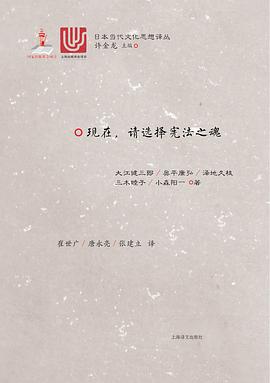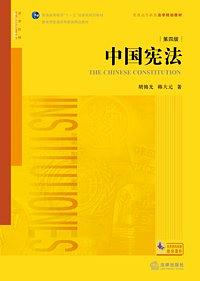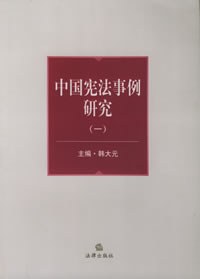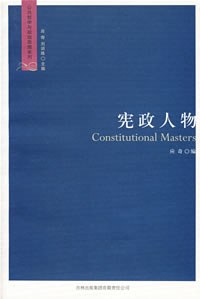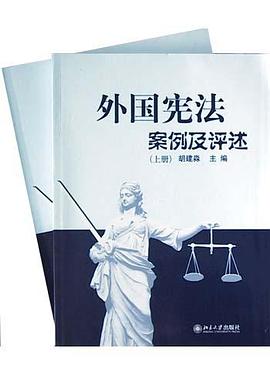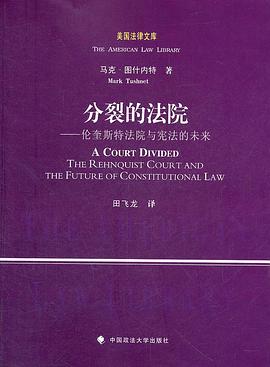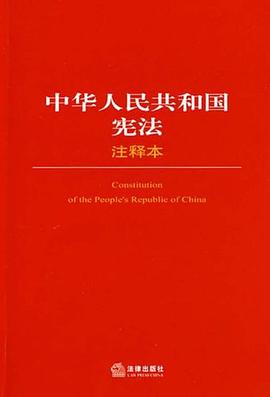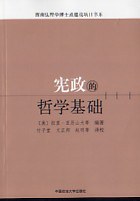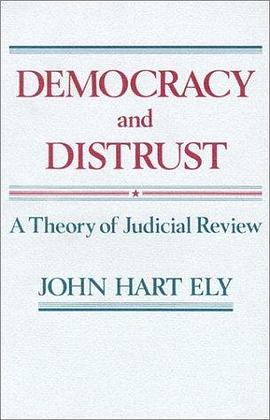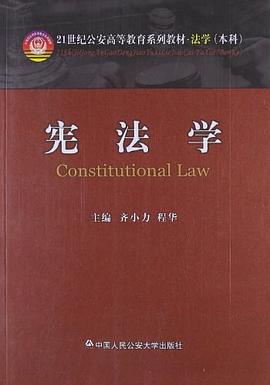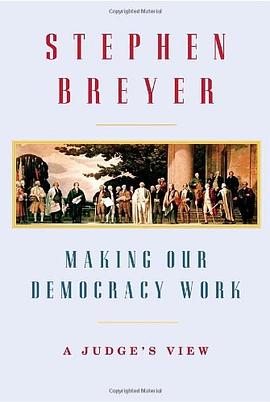

具体描述
The Supreme Court is one of the most extraordinary institutions in our system of government. Charged with the responsibility of interpreting the Constitution, the nine unelected justices of the Court have the awesome power to strike down laws enacted by our elected representatives. Why does the public accept the Court’s decisions as legitimate and follow them, even when those decisions are highly unpopular? What must the Court do to maintain the public’s faith? How can the Court help make our democracy work? These are the questions that Justice Stephen Breyer tackles in this groundbreaking book.
Today we assume that when the Court rules, the public will obey. But Breyer declares that we cannot take the public’s confidence in the Court for granted. He reminds us that at various moments in our history, the Court’s decisions were disobeyed or ignored. And through investigations of past cases, concerning the Cherokee Indians, slavery, and Brown v. Board of Education, he brilliantly captures the steps—and the missteps—the Court took on the road to establishing its legitimacy as the guardian of the Constitution.
Justice Breyer discusses what the Court must do going forward to maintain that public confidence and argues for interpreting the Constitution in a way that works in practice. He forcefully rejects competing approaches that look exclusively to the Constitution’s text or to the eighteenth-century views of the framers. Instead, he advocates a pragmatic approach that applies unchanging constitutional values to ever-changing circumstances—an approach that will best demonstrate to the public that the Constitution continues to serve us well. The Court, he believes, must also respect the roles that other actors—such as the president, Congress, administrative agencies, and the states—play in our democracy, and he emphasizes the Court’s obligation to build cooperative relationships with them.
Finally, Justice Breyer examines the Court’s recent decisions concerning the detainees held at Guantánamo Bay, contrasting these decisions with rulings concerning the internment of Japanese-Americans during World War II. He uses these cases to show how the Court can promote workable government by respecting the roles of other constitutional actors without compromising constitutional principles.
Making Our Democracy Work is a tour de force of history and philosophy, offering an original approach to interpreting the Constitution that judges, lawyers, and scholars will look to for many years to come. And it further establishes Justice Breyer as one of the Court’s greatest intellectuals and a leading legal voice of our time.
作者简介
Stephen Gerald Breyer (pronounced /ˈbraɪər/; born August 15, 1938) is an Associate Justice of the U.S. Supreme Court. Appointed by Democratic President Bill Clinton in 1994, and known for his pragmatic approach to constitutional law, Breyer is generally associated with the more liberal side of the Court.[1]
Following a clerkship with Supreme Court Associate Justice Arthur Goldberg in 1964, Breyer became well-known as a law professor and lecturer at Harvard Law School starting in 1967. There he specialized in the area of administrative law, writing a number of influential text books that remain in use today. He held other prominent positions before being nominated for the Supreme Court, including special assistant to the United States Assistant Attorney General for Antitrust, and assistant special prosecutor on the Watergate Special Prosecution Force in 1973.
In his 2005 book Active Liberty, Breyer made his first attempt to systematically lay out his views on legal theory, arguing that the judiciary should seek to resolve issues to encourage popular participation in governmental decisions.
目录信息
One Judicial Review: The Democratic Anomaly 3
Two Establishing Judicial Review: Marbury v. Madison 12
Three The Cherokees 22
Four Dred Scott 32
Five Little Rock 49
Six A Present-Example 68
ii / Decisions That Work 73
Seven Basic Approach 75
Eight Congress, Statutes, and Purposes 88
Nine The Executive Branch,Administrative Action,and Comparative Expertise 106
Ten The States and Federalism: Decentralization and Subsidiarity 121
Eleven Other Federal Courts: Specialization 137
Twelve Past Court Decisions: Stability 149
part iii / Protecting Individuals 157
Thirteen Individual Liberty: Permanent Values and Proportionality 159
Fourteen The President, National Security, and Accountability:
Korematsu 172
Fifteen Presidential Power: Guantánamo and Accountability 194
Conclusion Appendix A Images 221
Appendix B Background: The Court 228
Acknowledgments 233
Notes 235
Index 255
Contents
· · · · · · (收起)
读后感
《法官能为民主做什么》的编辑校对错误 《法官能为民主做什么》2012年1版1刷中,有不少小的错误,顺手摘出于此。 页34行7,“又能向求谁助”应为“又能向谁求助”。 页39行4,“强者措施”似应为“强制措施”。 页48行21,“诉求请求”似应为“诉讼请求”。 页77行3,“...
评分在没看这本书以前,我脑海中的美国最高法院在司法方面有着绝对的话语权,单纯的羡慕着他们的司法独立,殊不知和其他事物的发展一样,最高法院为了真正实现司法独立也摔过跤、走错过路,直至今天还是依然前行着。 作者对于通过案例来展示最高法院在美国权威的树立过程,以及...
评分作者自云,写作本书是为了增进普通民众对最高法院的理解。作者用清晰易懂的笔体来撰写这本书。在美国,法院是宪法的最终解释者,这种权威(authority)来自何处?在本部分,作者引用了莎士比亚的《亨利四世》,当Glendower咆哮道“我可以召唤地下的幽魂”,Hotspur说“我也会...
评分中国特色vs美国特色 开会还可以这样, 总统发言,法官可以不参加,在中国是不敢想象的。我单位开会都不能缺席,几乎不能请假。很多会都是劳民。
评分"为什么法院说什么,美国人都会照办?“当一位非洲法官向布雷耶大法官提出这个问题时,我真的很想狠狠的拥抱这位老姐,大喊一声知己呀,这可是问出了我憋了很久的问题呀。为什么美国人民偏偏要听从既没有”钱袋子“,也没有掌握”枪杆子“的九个小老头,而且这些个老头偏...
用户评价
我一直认为,理解一个复杂的系统最好的方式,就是观察它的失败案例和那些灰色地带。这本书的价值就在于,它将聚光灯投向了那些不光彩但却至关重要的环节——例如,在跨党派合作几近绝迹的当下,那些地方性的、非正式的“关系网络”是如何在关键时刻维持着系统的基本运转的。书中对“影子政府”或“深层国家”这类阴谋论的描述,进行了极其理性的去魅化处理,将其还原为基于专业知识、长期积累的官僚体系和精英共识的自然产物,而不是某种邪恶的密谋。这种冷静的还原,反而更有力量地揭示了权力运作的内在逻辑:它依赖的不是秘密协议,而是高度的专业化和彼此的路径依赖。对于那些对政治理想主义感到幻灭的读者来说,这本书提供了一种新的视角:也许真正的力量,并不在于改变所有规则,而在于精通那些虽然不光彩但却实际存在的“潜规则”。
评分这本书的叙事风格,摒弃了传统学术著作的刻板与枯燥,反而呈现出一种近乎文学性的张力。作者似乎非常擅长运用对比手法,将理论上的“人民主权”与现实中选民政治参与的碎片化、情绪化倾向进行鲜明对照。例如,在探讨媒体报道与公众认知形成的关系时,它细致地分析了特定叙事如何被主流媒体捕获和放大,以及这种放大效应如何反过来塑造了立法者对民意的“想象”。更让我印象深刻的是,书中对“中产阶级政治倦怠”这一现象的剖析,它不简单归咎于个人对政治的冷漠,而是将其置于经济不确定性和社会流动性停滞的大背景下进行考察。这种将个体心理与宏观结构紧密结合的分析框架,使得全书的论证充满了厚度和人情味。读起来不像是在听一位教授的讲座,更像是在和一位饱经世故的智者进行一场深入的、关于我们共同生活环境的对话。
评分令人耳目一新的是,本书在梳理历史脉络时,并没有采用那种线性的、英雄史观的叙事。相反,它将政治史视为一系列“未竟的实验”的集合,每一个重要的宪政时刻,都只是为下一轮的权力重构埋下了伏笔。作者对美国建国初期不同派系间围绕联邦权力与州权分配的激烈斗争的描绘,尤其引人入胜。他巧妙地指出,今天的许多政治僵局,其根源都可以追溯到那些一百多年前遗留下来的、为了达成临时妥协而设置的制度陷阱。这种“历史的幽灵”的论调,让当前的政治困境有了一种宿命般的沉重感。同时,书中对于技术变革如何重新定义“公共领域”和“私人信息”边界的探讨,也极具前瞻性,它没有给出简单的答案,而是抛出了一系列尖锐的问题,迫使读者去思考,在信息过载的时代,我们如何才能真正“知情”并有效地参与到民主生活中去。
评分这是一部深刻探讨美国政治运作机制的著作,它以一种极为务实和细致的笔触,剖析了现代民主体系在实践中遭遇的重重挑战与微妙平衡。作者似乎对华盛顿的权力游戏有着多年浸淫的直观感受,文字间流露出一种对制度细节的痴迷。书中并没有停留在对宏大理论的阐述上,而是深入到具体的政策制定流程、利益集团的游说策略,以及选区划分这些常常被大众所忽略的“幕后环节”。比如,它详细描绘了国会委员会是如何通过微妙的语言调整来影响最终法案的走向,以及在拨款过程中,地方政治人物是如何利用资源分配来实现其政治抱负的。这种对操作层面的揭示,让我对“民主”这个词汇有了更接地气的理解——它不是一蹴而就的理想状态,而是一场永无止境的、充满摩擦的妥协与博弈。阅读过程中,我仿佛被拉进了白宫西翼的走廊,亲眼见证那些看似理所当然的决策背后,隐藏着多少复杂的权衡与人际角力。对于任何渴望穿透政治新闻的表面现象,直达核心运作逻辑的读者来说,这无疑是一份宝贵的内部指南。
评分读罢此书,我感到的震撼不在于它揭露了多少惊天丑闻,而在于它如何以一种近乎冷峻的、社会学观察家的视角,解构了公民参与的边界与效能。作者似乎在暗示,我们习惯于从道德高地去审视政治,但这本书却将焦点放在了“什么能真正推动变革”这一更具操作性的问题上。它详尽分析了不同类型公民运动的历史轨迹——那些高声疾呼的抗议活动,与那些在政府机构内部默默耕耘、推动渐进式改革的力量相比,究竟谁的影响力更持久?书中对“制度惰性”的描述尤为精辟,它并非指某些官员的腐败或懒惰,而是一种根植于法律条文、历史惯例和既得利益网络中的结构性阻力。这种阻力使得任何激进的变革都必须被分解成无数个微小的、可消化的部分,才能勉强通过复杂的关卡。这种对“缓慢的进步”的透彻理解,迫使我重新审视自己对“效率”和“正义”的期待。这不仅仅是一本政治学读物,更像是一部关于如何在庞大且僵硬的机器中,寻找微小杠杆点以实现影响力的实用手册。
评分宪法书看多了一个样……
评分尽管美国宪法制定者们起了个好头,对法院寄予厚望,但马伯里诉麦迪逊过了五十年才有第二个审查案例而不至于使其成为绝响。事实上,从认为法院没用、自己不喜欢的判决大可不遵守到建立对司法的信仰,美国经历了长期的历史过程。这个历史过程表明,司法独立,不是司法独大,更不是期待司法成为救世主,而是期待以平衡的艺术达至更好的社会。为达至平衡,法官采用了实用主义的解释路径。然而,关于司法信仰的国民教育,美国依然任重而道远,毕竟调查显示,在这个三权分立的国家,只有1/3的美国人能够说出司法、行政、司法这三个分支的名字,还有3/4的美国人干脆根本不知道法官和立法者之间到底有什么区别。
评分权威 老生长谈 主流思想
评分明晚要在Rossabi的课上present一个有关联邦高法的opinion paper。先拿布雷耶挡一下~~
评分尽管美国宪法制定者们起了个好头,对法院寄予厚望,但马伯里诉麦迪逊过了五十年才有第二个审查案例而不至于使其成为绝响。事实上,从认为法院没用、自己不喜欢的判决大可不遵守到建立对司法的信仰,美国经历了长期的历史过程。这个历史过程表明,司法独立,不是司法独大,更不是期待司法成为救世主,而是期待以平衡的艺术达至更好的社会。为达至平衡,法官采用了实用主义的解释路径。然而,关于司法信仰的国民教育,美国依然任重而道远,毕竟调查显示,在这个三权分立的国家,只有1/3的美国人能够说出司法、行政、司法这三个分支的名字,还有3/4的美国人干脆根本不知道法官和立法者之间到底有什么区别。
相关图书
本站所有内容均为互联网搜索引擎提供的公开搜索信息,本站不存储任何数据与内容,任何内容与数据均与本站无关,如有需要请联系相关搜索引擎包括但不限于百度,google,bing,sogou 等
© 2026 book.wenda123.org All Rights Reserved. 图书目录大全 版权所有




